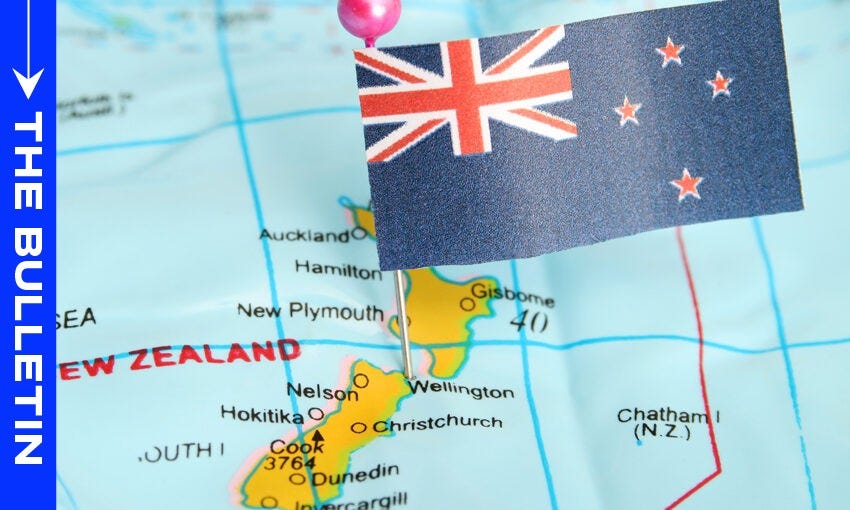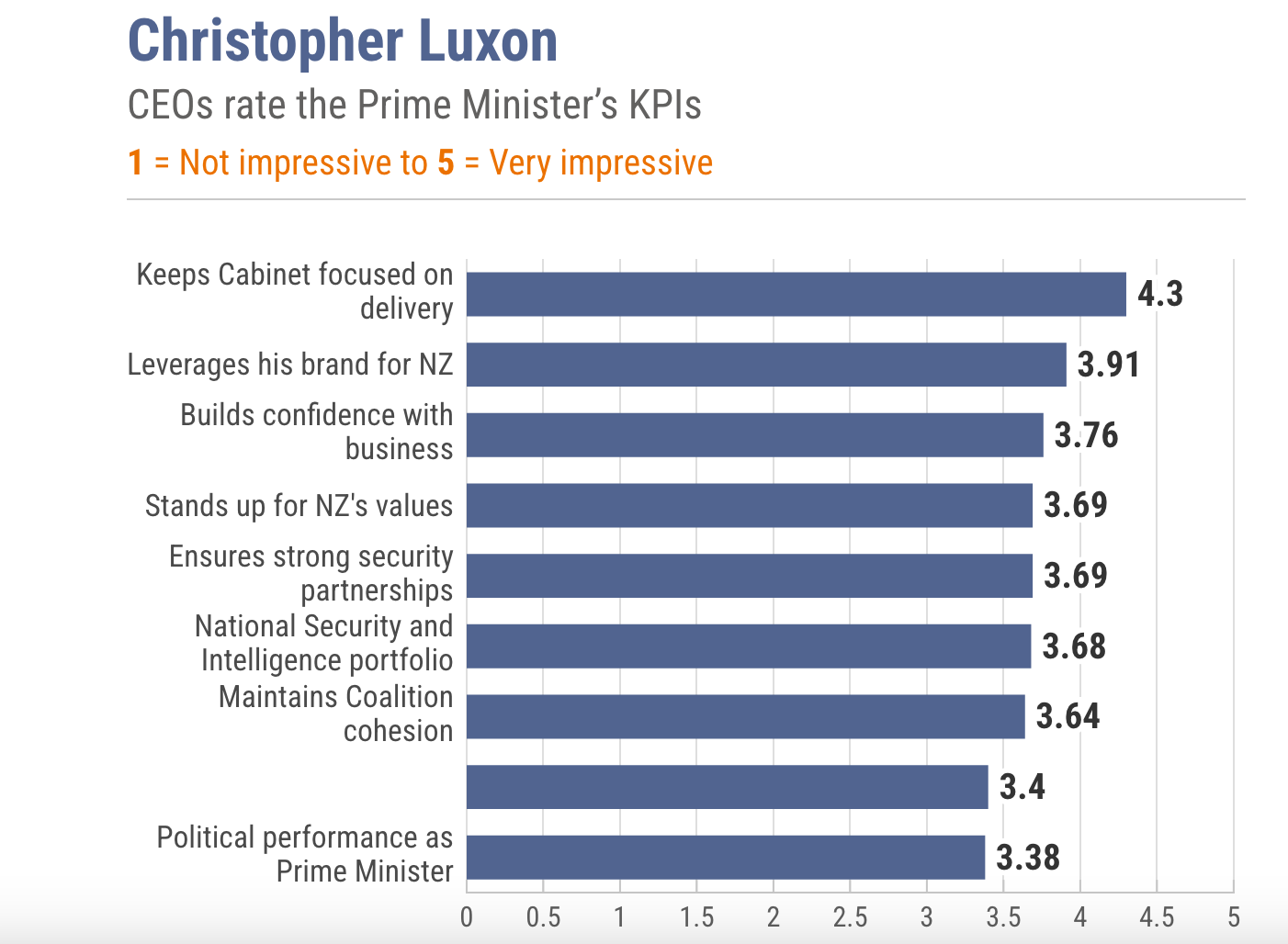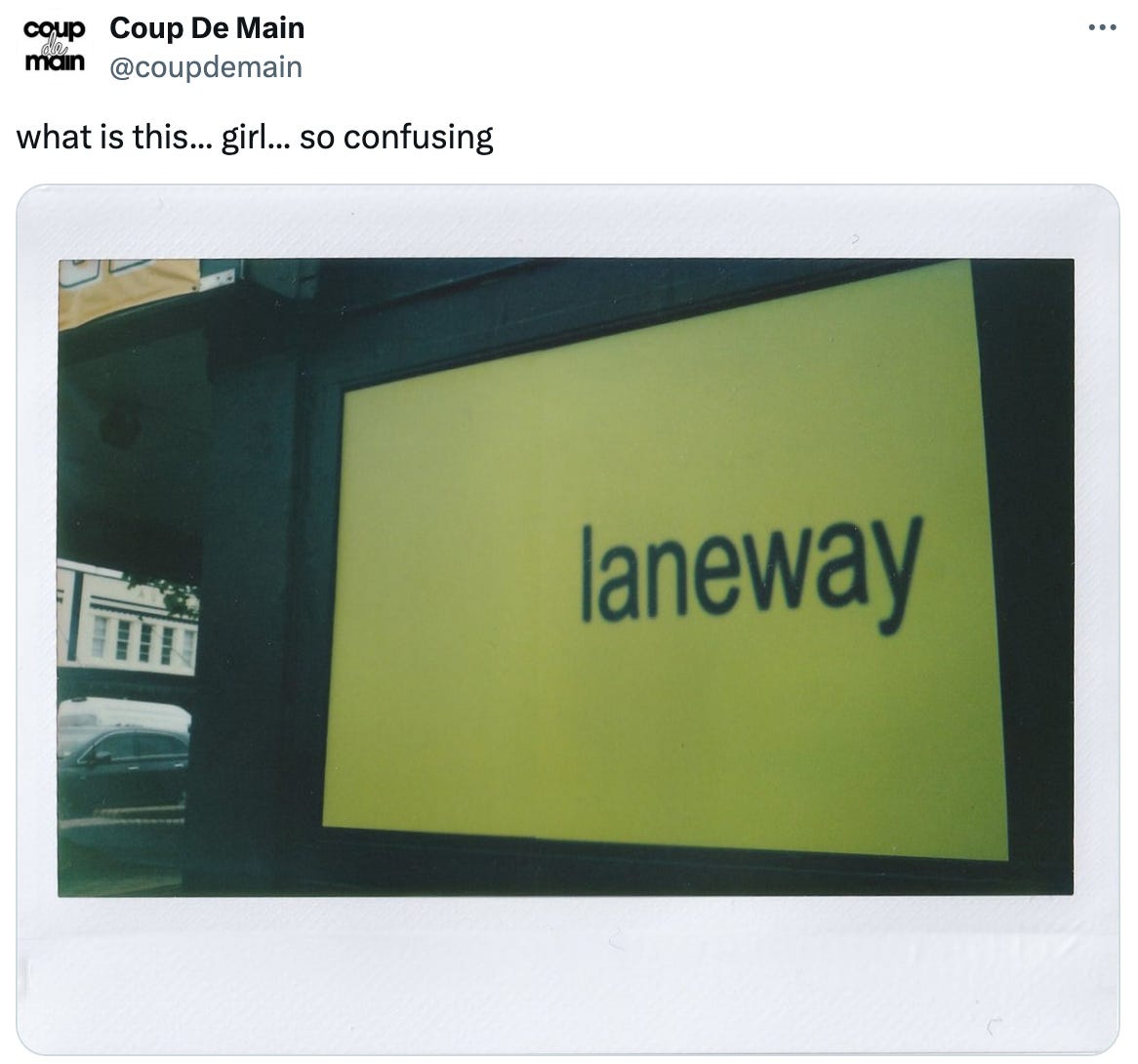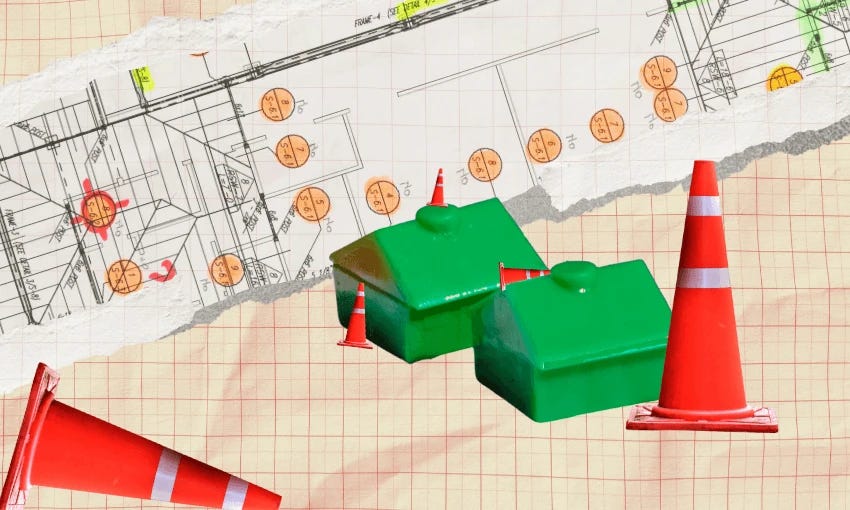More census data incoming: What is there left to learn?
Today's tranche of data will provide more detail about 'who we are as a nation, and the richness of New Zealand’s diversity'.
Mōrena, and welcome to The Bulletin for Thursday, October 3.
In today’s edition: Mood of the boardroom reveals star cabinet performers, liquified natural gas not Shane Jones’ “ideal” solution, and under fire minister Casey Costello will release the “independent advice” about the benefits of heated tobacco products. But first, we’re set to learn more about the country we live in as further data from Census 2023 is made public.
‘More detail about who we are as a nation’
It may feel like a lifetime ago that we filled out the 2023 census, but today will see further data from the national population survey released to the public. In a statement shared here by Sunlive, Stats NZ confirmed it will release data on population counts by ethnic groups, dwelling counts, religious affiliations and Māori descent. “Building on the first release in May, this data will provide more detail about who we are as a nation, and the richness of New Zealand’s diversity,” said deputy government statistician Rachael Milicich. It’s also the first release of census data to include data on gender, sexual identity and variations of sex characteristics, said Milicich.
It follows the release back in May of the first tranche of data, focused on top line information such as the overall population (the “team of five million” slogan we regularly heard about during the Covid period was, in reality, a team of 4,993,923). The Spinoff’s Joel MacManus broke down 12 interesting factoids from the first round of data, including that the population is getting older and that the country’s becoming more diverse.
MacManus is back in the census lock up today and will have a full wrap of the latest data at about 10.45am on thespinoff.co.nz.
Iwi affiliation populations have increased
In the run up to today’s release, some initial data released by Te Kāhui Raraunga of the Data Iwi Leaders Group revealed all iwi affiliation populations have increased at an average of 46% between the 2013 and 2023 Census, reported Te Karere. There was also a 200% increase in the number of people affiliating with smaller iwi, explained The Spinoff’s Liam Rātana. “Over the last decade or so, there has been a renaissance of smaller iwi and hapū reclaiming their mana and identity,” wrote Rātana. “As the public profile of these groups grows and they improve their outreach, they are beginning to connect with more whānau.”
To assist with accurate data collection during the recent census, Te Kāhui Raraunga designed an interactive map that allowed whānau to click on different regions, which displayed iwi names and all available options. This change helped users see all possible affiliations and increased the number of affiliations they could select from five to 16.
The issue of trust
Last year’s census was filled out by about 90% of the resident population – up on the 2018 result which was plagued with issues. Nevertheless, there were disruptions, largely due to Cyclone Gabrielle. But while overall figures were up, there were some concerning findings among those who chose not to participate. As Laura Walters reported for Newsroom in April, the number of “hard refusals” rose significantly from the 2018 census and anti-government sentiment was to blame for almost 30% of this. In the lead up to the census, reported RNZ, briefings from Stats NZ revealed a $100,000 “national trust and confidence marketing campaign”, with officials worried about “growing and significant anti-government sentiment and reducing trust”.
The census was held about a year after thousands converged on the front lawn of parliament for an occupation that, reported The Spinoff’s Toby Manhire, “engendered – and fed on – an unprecedented surge in the sharing of disinformation and conspiracy theory across digital platforms”. Recent data released by Stats NZ, that we talked about briefly last week, revealed an overall decline in trust in major institutions, reported RNZ. That included the health system, parliament, media, police and the courts.
Where to now for the census?
There is no question that the days of filling in the census survey every five years are nearing an end. Or, at the very least, the way that data is collected will have to change. In a piece for The Conversation earlier this year, Massey University’s Paul Spoonley observed that New Zealand is changing at a rate quicker than the census can keep up with, pointing to declining fertility rates and fluctuating immigration stats as two trends worth keeping an eye on.
So what could happen? Stats NZ chief executive Mark Sowden said in April that the traditional “census” as it is currently known “will probably disappear over time” as administrative data (which is already used to bolster census information) is improved. "There will always be a case for some surveying, so some going to doors asking New Zealanders for data, because there's some data, like around mould that New Zealanders have in their houses that we'll just never get admin data for,” he said. In June, Stats NZ carried out public consultation on “modernising” the census process ahead of 2028. Following evaluation by an independent panel, a “preferred approach” is due to be presented to cabinet later in the year.
Support our expanding mahi in the capital
If you value our coverage of all things Wellington, from our maps of bike networks, to local politics, to untold history, consider making a donation or becoming a member today.
Mood of the boardroom: Stanford the cabinet stand out
Chief executives and business leaders have rated education minister Erica Stanford the star performer from the coalition’s cabinet in the 2024 mood of the boardroom series, available in the Herald today. Some 37% of survey respondents marked her performance “most impressive”. Number two on the list was transport minister Simeon Brown with a score of 3.89/5, while finance minister Nicola Willis and infrastructure minister Chris Bishop were third equal.
Christopher Luxon himself came in sixth, though as Fran O’Sullivan writes (paywalled), business leaders generally praised his performance – particularly when it came to keeping his ministers in line and focused on delivery. Interestingly, as the graph from the Herald below shows, his worst rated score came on “political performance as prime minister” – though his rating remained an admirable 3.38/5.
More reading:
Business leaders’ optimism hits highest level since 2016. (paywalled)
Greens, Te Pāti Māori political leaders face mixed ratings. (paywalled)
Find the full Mood of the Boardroom series on the Herald website here.
‘We have a supercritical geothermal resource’ – Jones
Resources minister Shane Jones says a liquified natural gas import terminal isn’t his “ideal outcome” for addressing our energy shortfall, just weeks after the government made it easier for one to be built, reports BusinessDesk’s Dileepa Fonseka (paywalled). Instead, Jones believes major investment is needed in geothermal technology. “What I think possible is a sustained effort into opening up new geothermal energy, beyond sun, beyond wind, beyond hydro,” Jones said. “We have in New Zealand, located in the volcanic plateau, deep in the earth, we have a supercritical geothermal resource.”
On the proposed LNG terminal, Jones downplayed how much the government had committed to, saying that he was part of a “three-party government” that had asked for advice “as to what are the pros and cons”.
Meanwhile, as RNZ reports, today marks the last day of operation for Winstone Pulp International after 45 years. The company’s two mills will close for good, with 230 workers losing their jobs, as a result of high wholesale power prices.
Listen: The big hill and the tax boulder
The capital gains tax debate has lurched back on to the agenda thanks to the boss of our biggest bank and the housing issues faced by Christopher Luxon. Is it a good idea, and can Labour ever avoid getting electorally squashed by trying to push the rock up the slope again? Toby Manhire, Annabelle Lee-Mather and Ben Thomas chew it over.
Plus: did the government underestimate the strength of feeling in Dunedin over its long promised new hospital? Is the swap of a teacher te reo programme for more maths resource a good idea? And a journey through the crust of the Earth in pursuit of the source of Casey Chatbot Costello’s “independent advice” on tobacco taxes.
Find Gone by Lunchtime wherever you get your podcasts, or listen above.
Click and Collect
Investigating the possible “Wellington long tunnel” is taking longer, and costing more, than expected. Will it mean breaking a government promise for shovels in the ground in Mt Vic this term?
The NZ journal that commissioned then spiked a critical review of its co-editor’s book.
Casey Costello will release the “independent advice” about the benefits of heated tobacco products. Meanwhile, a sting investigation has found vape stores caught selling non-compliant heated tobacco products.
Oranga Tamariki staff investigated for “excessive” force kept jobs.
Are we finally about to see the state of Health NZ's finances?
Politico has called yesterday’s vice presidential debate a win for Trump running mate JD Vance (and they weren’t the only ones). Let me know what you reckon in the comments. From NBC, here are five takeaways from the debate.
Pub plagued by violence can’t serve booze – so why has it still got pokies?
On the Boiler Room Substack: Are big shows by major artists only for the rich now?
But, speaking of concerts, maybe some good news? It looks a lot like Charli XCX will indeed be headlining Auckland’s Laneway Festival.
The construction sector is disoriented and depleted, and the path to recovery unclear, writes Mat Brown. Alex Casey power ranks week four of Celebrity Treasure Island. I recapped a ThreeNews segment dedicated to former prime minister John Key and his deeply relatable passion of flying a helicopter. For The Spinoff Books Confessional, when Damien Wilkins met Janet Frame. Anna Rawhiti-Connell reviews Dai Henwood documentary Live and Let Dai. And Madeleine Holden reveals the meat lover’s guide to eating a more climate-friendly diet.
That’s it for this morning, thanks for reading. I’ll catch you back tomorrow.
Want to get in touch? Join the conversation in the Substack comments section or via email at thebulletin@thespinoff.co.nz if you have any feedback on today’s top stories (or anything else in the news).
If you liked what you read today, share The Bulletin with friends, family and colleagues.


















All this tells me is that our business leaders are a pack of buffoons who either deny the climate and poverty crisis, or DGAF about it. Rating Simeon Brown who's single-handedly locking us into more climate- and life-destroying hyper expensive roading projects that set us back to the 1950s, and Nicola Willis who has the economic nous and spirit of a sand viper that highly, says everything I need to know about our capitalist "leaders".
And Vance won the debate, in the sense that Walz helped sanewash him a bit, instead of goading him into his usual misogynistic and racist ranting. But the two most played clips show his true colours: whining about being fact checked on his ultra racist lies, and refusing to say Trump lost 2020. Ultimately, this debate will not matter as much as the WW3 chatter, or the strikes hitting the economy as an "October Surprise". I just wish the MSM would finally discuss Trump having lost the very last of the tiny marbles that were still rolling around in his rancid head cheese, and Vance clearly being installed by Thiel and Musk as the real fascist broligarch puppet that's gonna install Project 2025 and destroy US (and world?) democracy for good. That's all they should scream about, if they were serious about their own survival.